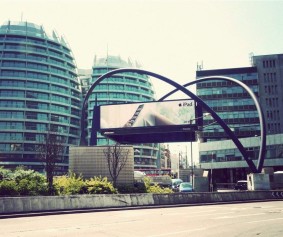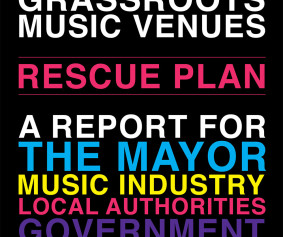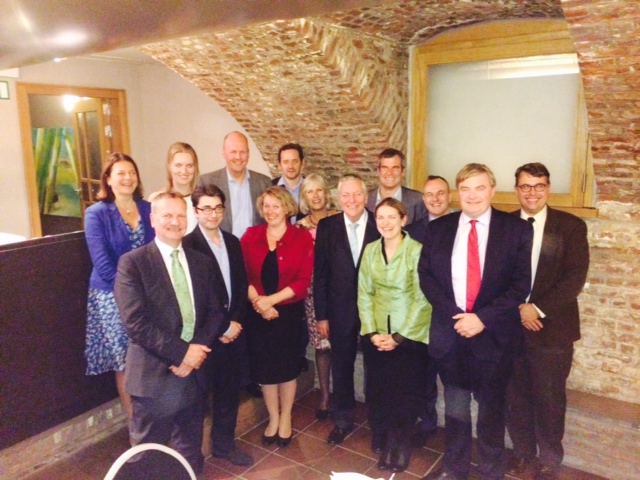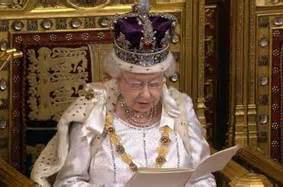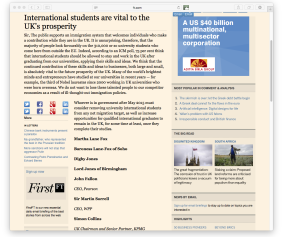Lord C-J calls for Action on Creative Skills
On the 28th January 2016 the Lords held a debate on Adult Education and the Skills Needed in the UK Economy. I called for action on skills in the Creative and Tech Industries.
http://www.publications.parliament.uk/pa/ld201516/ldhansrd/text/160128-0002.htm#16012842000917
- The challenge is that the vast majority of those businesses are small. Freelancing, too, constitutes 30% of the sector overall. There is a shortage not only of digital and software skills but craft and technical skills as well. In the tech sector, it is clear that we need 1 million tech jobs to be filled by 2020 to keep up with demand. There are also concerns about the quality of business skills in the creative sector, too.
- There are key questions about how the new apprenticeship levy will operate. . Will contributions from the creative industries be invested for the benefit of those industries? Will government investment continue alongside the levy? Will there be transparency in how contributions are invested? Will there be a joined-up, UK-wide approach in line with an industrial strategy for the creative industries? Will businesses be able to set some of their internal costs incurred in developing standards and administration against the levy through an allowable expense system?
- Achieving diversity is also a major challenge for the industry. Access to career pathways is obscure for those without connections. Unpaid internships are all too common. Interns can be useful, but they must be paid. Overall in the creative media, women, BAME people and the disabled are badly underrepresented. We need to attract, develop and nurture their skills to the maximum to identify and develop them faster. Mentoring, as NESTA has identified, is crucial
- We particularly need to take action to encourage more women into the tech industry, where women hold only 17% of the jobs. We must do more at the entry level; the process must start at school. In the creative sector, PSBs and the independent sector need to show leadership in efforts to increase diversity and social mobility.
- I welcome changes to the national curriculum so that it now includes coding and computer science but is disappointing that the Government seem so intent on a STEM rather than a STEAM agenda in our schools. The truth is that we need students going into the creative industries to be multidisciplinary
- There are many other issues on skills in the creative industries: visas for international entrants where skills are at a shortage; the importance of clusters; the relationship between universities; and in particular the AHRC knowledge exchange hubs in London and the nations and regions, such as the Creative Exchange and Creativeworks. What support are the Government giving to those hubs? What action are they taking to ensure that the two skills councils work ever closer together and merge into a powerful and effective body to make sure that we plan and make the right strategies for the creative industries.
How Does London Become the new Silicon Valley?
I recently gave a speech at Kings College Student Think Tank on the subject of how London could develop into Silicon City .
Here's what I said
I am delighted to be here at the launch today to talk about tech and what we can do to make sure that London really becomes Silicon City. I would in fact like to see Silicon Nation!
will.i.am says “Tech is new Rock N’ Roll” . He also says London is the centre of the world. And of course he's right!
We are already doing well –after all the UK is generating more $1bn Unicorns than any other country in Europe. It is already the pre-eminent location worldwide for Fintech. Just five years after the launch of Tech City, venture capital into London is now 10 times higher than in 2010.
Tech firms in the capital secured almost $1.4billion in venture capital financing over the course of 2014, double the figure for 2013 and 10 times the figure of 2010. In just the first three months of 2015, the City’s tech companies secured more than $682million in VC financing. Over the next ten years the number of digital technology companies in London is expected to rise to 45,000 and create more than £12 billion of economic activity, according to research by Oxford Economics
Of the 17 UK tech unicorns, 13 are based in London. More than the total of Sweden and Germany put together.There was a 92% increase in new digital companies incorporated in Inner London between 2010-13. 251,590 are in digital employment across Inner London, more than any other city in the UK Over the next ten years there are expected to be 46,000 more digital jobs in London, according to research by Oxford Economics
London has become the FinTech capital of the world – With more people employed in the sector than any other city worldwide, standing at 44,000 (1,000 more than New York). London is a major hub for big data. There are an estimated 54,000 big data workers within 25 miles of London, compared to 57,000 for New York City and 98,000 for San Francisco/Silicon Valley
I had the privilege of launching the Manifesto of TechUk the body that represents the UK tech industry shortly before our General Election this year. It strongly reinforced and complements the Start up Manifesto from COADEC published shortly before and the Report "Connected Cities" from Jim O'Neil's City Growth Commission published in July.
All of them in their own way tackle a series of policy initiatives and developments which UK Tech companies perceive they need to take effect to enable them to grow and prosper in the UK in the context of what is a global digital revolution which we are all experiencing and which TechUk’s Presdent Jaecqueline de Rojas has described as “Irreversible and Unstoppable”. In each case they want to build on success.
In a non political way everyone is now singing from the same hymn sheet. Let me tell you why.
Access to Finance and Commercial Advice
First we need to ensure that Tech companies at every stage-start up and beyond have access to the Finance they need to grow and can stay in London. This has been the subject of a great deal of activity in the past 5 years
Over time UK start up Tech companies have a benefited from a range of Government investment and support schemes giving them access to early stage equity finance through the Government's Seed Enterprise Investment schemes. It's one of the most generous early stage tax breaks available anywhere in the world
Tech companies have also benefited from a range of Government investment and support schemes, including the Business Growth Fund, Enterprise Capital Funds (ECF)and the Enterprise Finance Guarantee (EFG),
It is in two stages of equity finance where we are behind Silicon Valley and Nasdaq in New York. Problem of business accessing finance to achieve scale. There is a danger of businesses moving to the US at this funding stage. A recent report by Sherry Coutu on Scale Up highlighted this saying: “There is a lack of follow-on capital in the UK, compounded by short term investor mind-sets”
In response the London Stock exchange has created the new High Growth Segment to encourage companies to list here which is having an impact. It has also developed the ELITE programme of structured engagement developing and supporting ambitious private companies through their next stage of growth.
(Partnered with Imperial College Business School) ELITE delivers a three part service of education, business support, mentoring and access to an ecosystem of professionals fostering growth Companies enter an 18-month programme to give them a mix of education, training and direct contact with Europe's financial and advisory community. Elite shows company management teams how to get access to the most suitable funding to help them grow, which could be VC investment, private equity or stock market flotation
As regards debt finance with very limited exceptions the banks are failing SME's and start ups. They are only really interested in established businesses.
But in different ways BgF (Business growth Fund) and BBB (the new British Business Bank) go some way to addressing these issues. since its launch in 2011, BgF has directly invested over £400m of growth capital in more than 70 British scale-ups, with more than £200m deployed in the past 15 months. The British Business Bank has invested almost £150 million in a number of growth finance funds and lenders in the UK scale-up sector
There is however the government backed Start up Loans company that has made 33,000 loans for start ups since 2012 amounting to £181 million. The average loan size is £5000.
The Start Up Loans Company was established in September 2012, when Lord Young identified that if self-employment was rooted in the British mentality and considered as a viable career path this would lead to increased job creation. Their mission is to ensure the provision of affordable finance, free mentoring and support for those who cannot obtain funding from alternative sources.
The Start Up Loans Company is supported by the British Business Bank, with a further £330 million of government funding confirmed. 51% of loans have been to the under 30’s.
Then there is Crowd funding is beginning to have a real impact. Loans through UK Crowd funding have hit the £2bn mark at the end of last year.
Nicola Horlick:
“Crowdfunding is all about cutting out the middle man and allowing small businesses to get the funding they need without banks taking a slice of their margins in fees from when firms take out business loans," she said. "For savers, these ventures offer the potential for much greater returns."
It is good that funds such as Funding Circle are receiving government support through the Business Finance Partnership scheme (BFP). But in the wake of British drone startup Zano's recent bankruptcy after heavy funding from Kickstarter questions are being asked about the crowd funding model.
There is more to be done however . There is no magic wand but we should be facilitating new entrants to the banking sector, including through public procurement policy, so that there is much more choice and variety of competitors in banking, in particular business banking .I hope that the many new challenger banks such as Metro, TSB etc now emerging will make a difference but it should be much easier to establish a new bank and to switch Bank accounts especially when the customer has an overdraft.
Public Funding
I was pleased to see in the recent Autumn Statement that that the science budget has been ring fenced and more ‘Catapult’ innovation and technology centres, essentially business innovation accelerators, will be rolled out. This kind of public support is crucial
Commercial Mentoring
There is also a need for more commercial mentoring and support for start ups quite apart from the finance. This includes backing not just micro businesses but individuals as well. We should be giving them more support at the so called “Friends and Family” stage. Some sectors like the British Fashion Councils New Gen programme which identifies talent and nurtures and mentors it towards commercial success are a model of how this can work.
I came across an innovative new business the other day called Entrepreneur First. Unlike accelerators and seedfunders like Techstars, Y Combinator and Wayra, although they have impressive track records, EF focuses on finding and funding talented individuals, not just promising companies and using Venture Partners to mentor them on a weekly basis. They say “It's only a matter of time before EF produces some seriously big tech companies, possibly even unicorns." as a result.
Universities
Of course there is a role as well for serious tech, creative and R&D inspiration and help for start ups and micro business and that is where universities with their ever increasing enterprise agendas often come in.
For instance I went to a presentation lat week about The Creative Exchange which is a collaboration between Lancaster University, Newcastle University and the Royal College of art, who bring expertise of their PhD students in digital design to assist micro businesses develop their ideas and meet practical challenges.I know you at Kings are part of Creative Works London in partnership with QMUL and others, also Funded by the AHRC
Thirty-eight London-based universities, colleges, museums, libraries and archives. They work with businesses who are interested in exploring areas such as entrepreneurial development, emerging markets, new ways of engaging London’s diverse audiences, and the development of digital resources and media content. Having seen the Google Campus in Shoreditch in full swing I know that can be a source for help and inspiration too.
Understanding how to access these great schemes and skills for individuals and micro businesses is crucial however and there is more that could be done by government, the tech hubs (Tech City /Tech North) LEP’s and government sponsored catapults in helping them navigate to where university partners can be found.
Skills
The talent available however is far below what we need. Start ups need a mixture of technical and creative skills to develop their new digital services.
The Tech UK manifesto says we need 1 million tech jobs to be filled by 2020 to keep up with demand.
I welcome the mandatory inclusion in the curriculum of coding/computer science from this September for 5-16 year olds, the first in the G20 Also welcome the involvement of the tech sector in Code Clubs. Now of course we have the Raspberry Pi zero for $5 so there’s no excuse for not getting started!
But even if the pipeline from schools and universities is finding the right talent ,. subsequent training and proper apprenticeships are hugely important. We need to increase the number of apprenticeships both post school and university and improve their quality
I don’t know how many of you are from overseas but that said we will still be reliant on the skills of overseas undergraduates and post graduates and we should welcome them. We shouldn’t chase unrealistic targets in trying to reduce in net migration at the expense of growth in the digital economy. We should remove students from our immigration targets given their temporary status. In particular too we need to go further and reinstatement of the post study work route visa.
Good news on one front however. Attracting the best and brightest tech talent to the UK got easier today as the Home Office has published renewed eligibility criteria for the Tech Nation Visa Scheme (Tier 1 Exceptional Talent).
Following the announcement of plans to revise the criteria on 16th October 2015, the visa route is now officially open for applications under the new eligibility criteria.
This route is now open to candidates, who although assessed against the same criteria, will be considered to have ‘Exceptional Promise.’ This aims to open the route to a broader base of aspiring talent from outside the EU.
We shouldn’t just be talking about skills for entrepreneurs/ start ups, what about the customer, the audience-whatever we like to call them? The Tech Uk manifesto urges that digital exclusion is tackled. We still have many families without access to a computer or to internet facilities at home. There is still a lack of universal digital skills in Britain. 23% of adults lack basic digital skills.
Norway/Sweden by contrast have 97% basic digital literacy. We need commitment by Government to fund the teaching of basic digital skills through initiatives like Martha Lane-Fox’s Doteveryone initiative and Go On UK the digital skills charity she founded to combat digital exclusion.
On skills still I am delighted that industry is becoming less male dominated. We should use all available skills and encourage young women to go into STEM subjects as well as young men.
I mentioned the President of TechUk, we also have a whole range of other prominent women in tech. Eileen Burbridge who is the UK Ambassador for Fintec, Sherry Coutu who I have mentioned and is an important angel investor, Nicola Mendelsohn the V-P of Facebook and Chair of the Creative Industries Council, and not least Baroness Joanna Shields, the former CEO and Chair of Tech City and is now the internet safety and security Minister.
Clusters
The TechUk manifesto clearly recognizes the importance of geographic and sectoral balancing of our economy . Correct when the Manifesto says tech economy “more geographically extensive than is often recognized”
And this leads to the importance of clusters. Tech City yes-with 15,000 startups last year and the year before.
70,000 people now employed there. The Tech sector has accounted for 30%of new London jobs since 2009.
But there are so many other places,
- Newcastle Silicon Shore,
- Liverpool with the Baltic Triangle
- Brighton’s so called Silicon Beach
- Dotforge in Sheffield
- Software City Sunderland
Yes Manchester, Edinburgh, Leeds, Bristol. Birmingham, and Bath all have creative and tech clusters of different kinds . The role of our World class universities like Kings and their networks and enterprise and spinout activities is crucial in delivering all of this.
But RSA's City Growth Commission chaired by Jim now Lord O’Neil took the view that too many of the UK’s urban areas outside London are failing to achieve their growth potential. Compared with London these cities are still weak economically. How can we strengthen our clusters?
That's where the Northern Powerhouse Strategy comes in with development of the city region/combined authorities developed from policies started under the last (Coalition) government. So far we have Liverpool and Sheffield City Regions and the West Midlands Greater Manchester Tees Valley and North East Combined Authorities.
The plan is to devolve more economic decision making to local areas and away from national government. Cities will have greater powers, especially over finance. Currently 90% of tax is collected by central government. That is going to change entirely by 2020 ands city regions will have entire control over their income and budgets by then.
And the Cities are thinking big : I recently spoke at a Conference entitled " Manchester: From Regional Hub to Global Incubator!"
We also need to ensure much better transport and digital connectivity between our Metro areas outside London for instance and hopefully the investment in Transpennine line will do this along with the creation of Transport for the North.
International/The EU
We are already the highest net exporter of computer and information services among the G7 countries and our tech/internet economy accounts for a greater percentage of GDP in the UK than in any other G20 country.
We need digital markets to remain open and to break down the barriers to E-commerce across the EU to create a genuine European Digital Single Market. That is high up the agenda of the EU
The tech sector want the UK to help drive the reforms that Europe needs to become more open, innovative and competitive. As a result an overwhelming majority of the tech industry want the uk to stay in the EU.
We should embrace TTIP the US/EU free trade agreement in the offing.
The Role of Creative Content
There were some areas however where in my view the tech UK Manifesto could have been more explicit.
As well as recognising the need to be at the forefront of the Digital Economy our tech industries ands start ups need to acknowledge the increasing convergence between platform and content or design, between tech and the creative industries. There is no doubt that each sector is increasingly making use of relevant skills in the other.
All this means of course that Intellectual property protection through copyright enforcement is a subject of increasing importance in the digital age both as to product design and creative content. Attracting investment becomes more uncertain and more unattractive without proper protection of this vital asset. Business models are changing rapidly but all to a greater or lesser extent depend on good IP protection.
Digital copyright infringement sanctions need to be enhanced in the digital space. There are other initiatives eg Follow the Money which we could to ensure that infringing websites do not benefit from advertising and credit card company agreements.
However, combating piracy and unlawful copying is not simply a matter for the law. In both our countries we need to combat the idea that copyright infringement is socially acceptable through education and we need to make sure that there are legal ways of accessing copyright works at reasonable cost. Initiatives like Creative Content UK by the creative industries and ISP’s are important
The key too is improved licensing. One of the most exciting developments is the creation of the U.K. Copyright Hub which is a portal by which copyright works of all kinds can be identified and then licensed. It will I hope develop into an international resource. But it needs funding by government to ensure this happens.
Realize I haven't addressed the fundamental question of our broadband infrastructure. Could talk for hours about this but I will resist the temptation!
Rural areas are still beset by slow speeds. Despite a £1.2 billion procurement programme, we are still a long way from universal high-speed broadband. As a report from the Commons public accounts committee (PAC) last March detailed, red tape and the monopoly position effectively occupied by BT have stymied the programme.
Or housing. The Standard recently highlighted the fact that we may be Silicon City with some massively growing businesses like money transfer World Remit or holiday firm Secret Escapes but they won’t be able to expand if there no where for them to live. So housing policy is vital. We should do much more to encourage the provision of mixed studio/office living space with special tax breaks.
Lord C-J Demands Action from Government on Venue Closures
In the light of huge concern expressed at Venues Day 2015 and in the Rescue Plan put together by the Mayor's Music Venues Taskforce I recently instituted a debate in the Lords about what plans the Government have to support small grass-roots music venues.
This is what I said.
According to UK Music’s latest figures, the music industry now contributes £4.1 billion to the UK economy, generates £2.1 billion in exports and employs more than 117,000 people. The sector as a whole grew by 5% in 2014. While our music industry is succeeding in many aspects, behind these impressive figures, elements of the sector are not doing as well. The focus of this debate, and of my remarks today, concerns what plans the Government have to support small grass-roots music venues. I am delighted that so many other music-loving noble Lords are joining in today’s debate.
Earlier this year, the Mayor of London established a Music Venues Taskforce. Chaired by the Music Venue Trust, and involving the Musicians’ Union, UK Music and representatives from two London venues—the 100 Club and Village Underground—the task force published its Rescue Plan in October to address the 35% decline in grass-roots music venues in the capital since 2007. While a lot of the publicity for grass-roots venue closures has been centred on London, the issue of grass roots is not unique to the capital. Venues such as Leicester’s Princess Charlotte, TJs in Newport, the Duchess of York in Leeds, the Picture House in Edinburgh and the Roadhouse in Manchester have all closed due to a number of issues that add up to the same thing: running a grass-roots music venue is becoming increasingly challenging.
In the task force’s Rescue Plan, the Music Venue Trust came up with a definition of a grass-roots music venue—as distinct from other premises—centred primarily on its cultural and social role and based on music programming being the establishment’s raison d’être. Furthermore, being a grass-roots venue means being a beacon of music and a key generator of night-time economic activity, and taking risks with programming and acts.
I am sure that many noble Lords have been enjoying the latest album from UK artist Adele, 25, which has set records around the world for sales and is likely to be this year’s global music success story. Adele played her first gig at the 12 Bar Club in London, whose Denmark Street venue is now closed. She went on to play support slots and small shows across the country, building her skills and her experience in front of small audiences in the manner that has enabled UK artists to thrive for the last 50 years. Had it not been for thevital grass-roots music venue circuit, it is difficult to see how an artist such as Adele could have cultivated her creativity. In 1994, a little-known band by the name of Oasis undertook a 25-date tour of the UK which transformed them into the world’s leading live band. Of those 25 venues, only 12 remain open.
The UK’s ability to create more acts like Adele and Oasis is being challenged by a number of threats to these important institutions. These threats include rising property prices and rents, increased demand for housing in big cities, increases in business rates, lack of specific guidance on how to treat music venues in planning law, increased deregulation of the planning system—notably the permitted development right from 2013, which allows offices to be converted into homes without the need for full planning permission—and increased conditions put on other aspects of a venue’s licence, despite the exemptions put in place by the Live Music Act.
There has been a lack of central government legislative support when contrasted with other key music markets such as the USA or Australia. In financial terms, across continental Europe, the grass-roots music venues sector has attracted significant direct government or industry subsidy, which distorts the market, making it difficult for our venues in the UK to compete for international talent. Thankfully, there are a number of sensible actions that the Government can take in order to alleviate the problems for grass-roots music venues.
First and foremost, the Government should introduce the agent of change principle into planning law. This principle would mean that when a planning development is granted, the onus is on the incoming individual or business to take responsibility for any changes needed to deal with noise from businesses that existed in the vicinity before permission was granted. Such a provision would significantly reduce the financial and administrative burden placed on venues when new development occurs. The principle has already been adopted in some states in Australia and the US. The Mayor of London has indicated that the agent of change principle will be adopted in the London Plan 2018.
Will the Minister undertake to look at how primary legislation can be strengthened in this regard? An opportunity exists in the Housing and Planning Bill, where amendments to introduce the agent of change principle have been debated in the Commons. In the debate on Tuesday, Planning Minister Brandon Lewis rejected the amendments as unnecessary. He claimed that the National Planning Policy Framework incorporated the principle and so did the guidance—I suppose that he meant paragraph 6 of the noise planning guidance.
However, he said that he is trying to meet the music sector on this in conjunction with Culture Minister Ed Vaizey who pledged to arrange a meeting with a delegation when he attended Venues Day 2015, the annual national gathering of grass-roots music venues from across the UK, which is organised by the Music Venue Trust. UK Music has followed up on this but no date has been confirmed. Can the Minister undertake that this will happen before Report in the Commons on the Housing and Planning Bill?
Will the Minister also consider how the ground-breaking deed of easement of noise in the recent Ministry of Sound case can be further promoted as good practice in resolving cases between developers and venues? Will he also commit to a biannual meeting of key Ministers to consider, develop and monitor strategies of support for venues?
Secondly, the Government should introduce full relief from business rates for grass-roots music venues. As I have already outlined, business rates are problematic for music venues. A small London venue may pay tens of thousands of pounds a year in business rates, making it economically unviable without financial support. The Government are conducting a review into business rates relief for local newspapers. This creates a potential precedent for the Government to review rates for grass-roots music venues. Such a measure would go some way towards correcting the imbalance in cultural subsidies with our European competitors.
In monitoring the impact of the Live Music Act and further entertainment deregulation from earlier this year, the Government should review whether local authorities and the police are utilising and over- regulating other licensing conditions to regulate certain music venue activities which should otherwise benefit from the full impact of the coalition Government’s entertainment deregulation reforms. Internal government co-ordination is also key to this issue. This debate is being responded to by the noble Earl, yet other aspects of government such as DCLG, Defra and the Home Office also have a strong interest in this.
At Venues Day 2015, Minister Ed Vaizey firmly backed the idea that grass-roots music venues should have access to cultural funding. What steps are the Government taking to ensure that that happens, and specifically what can be done to ensure that any available funding acts directly to improve the infrastructure in those venues so that they are attractive places for touring artists to play?
Finally, will the Government make a specific response to the Mayor of London’s Music Venues Taskforce report, and what further work are they planning to undertake with other large cities and communities in the UK to promote the vital role of grass-roots music venues?
We protect and support our theatres, arts centres, civic centres, museums and galleries by recognising their cultural priorities. The Government should do all they can to ensure that these vital incubators of the live music industry are able to access similar levels of support and recognition from national government and local authorities as those received by other spaces. These issues are urgent for the future of live music venues and I hope that the Minister will respond appropriately.
The Minister's reply is here:
http://www.publications.parliament.uk/pa/ld201516/ldhansrd/text/151210-gc0001.htm#15121057000162
It showed they are taking the matter seriously particularly on the planning front. We will be testing their intentions when the Housing and Planning Bill comes to the Lords shortly and we will be putting down amendments to introduce the principle of the Agent of Change into primary legislation.
All Party Parliamentary China Group Annual Report 2014
All Party Intellectual Property Group discusses Digital Single Single Market
Along with Chairman Pete Wishart MP and Treasurer Jim Daly MP, Eddy Leviten of the Alliance for Intellectual Property and others from the industry and Parliament, I recently visited Brussels to discuss Commission proposals for the Digital Single Market which could have implications for copyright and the ability of the creative industries to finance the production in particular of film and AV product, such a strong element of Britain’s creative industries.
We came away somewhat reassured that the key objective for the Commission is portability of content rather than reform of copyright but there are slightly different messages coming from different directions both about objectives and process so time will tell.
We can expect a communication from DG Connect on overall strategy for different elements such as cross border access, so called geo-blocking, harmonisation of exceptions online intermediaries and follow the money/enforcement after the New Year and proposals on portability separately in the same timescale.
The APPG on IP will be publishing a full report on the visit and our conclusions shortly
"We came away somewhat reassured that the key objective for the Commission is portability of content rather than reform of copyright..."
— Lord Clement-Jones
Lord C-J debates the future of the BBC
Immediately before the publication of the Green Paper (BBC Charter Review Public Consultation) the House of Lords briefly debated the issues raised by the Chancellor's Budget decisions on the licence fee and the implications of leaks from the DCMS about the future of the BBC. This is what I said.
We have just witnessed a smash-and-grab raid. As five years ago, the Chancellor has treated the licence fee as a piggy bank. The director-general has had no alternative but to look cheerful about it, and all the while the Murdoch press gleefully gets government exclusives. I share the disappointment expressed by Rona Fairhead in her letter to the Chancellor last week about there having been no public debate at all about the licence fee. I think the CMS Secretary’s former colleagues on the Select Committee will be astonished, too.
Despite this, there are still major uncertainties. A Perry report recommendation to decriminalise could have an impact of £200 million. The CPI settlement now also appears conditional. We now at least have a debate going forward about the scope of activity of the BBC and the appropriate form of governance for the BBC, but the Secretary of State for CMS and the Chancellor seem to be in disagreement about whether the BBC should continue with popular programming. There is much talk of the BBC’s online presence but, as the example of Channel 4 shows, younger audiences are increasingly migrating to the internet, catch-up and streaming for television consumption.
There are issues to be discussed. In particular whether the BBC should or could move to a publisher broadcaster model. On the trust, my colleagues and I have never felt that the current structure properly resolves the issues of responsibility for the regulation, governance and management of the BBC. Like the CMS Select Committee, I would favour handing responsibility for regulation, including service licences, to Ofcom, as well as the existing responsibility for the public value test. We must have an open debate, and I ask the Minister: is the Green Paper on track for this week?
It is good that the BBC is mustering its supporters despite the sniping of the Murdoch Press and no doubt we will be intensively debating the issues in the months to come.
I also took part in the subsequent debate on the Question asked by Lib Dem colleague Baroness Grender focusing in particular on the Advisory Panel appointed by John Whittingdale the Culture Secretary which
- will meet frequently and contribute significantly to the Government’s charter review
- yet it has no terms of reference,
- will not take its evidence in public,
- and is not subject to appointment by reference to the Nolan principles.
As I said it is no surprise that even Tory peers described them as “assistant gravediggers” (Lord Patton) —and "they clank with special interests" (Lord Fowler)
http://www.publications.parliament.uk/pa/ld201516/ldhansrd/text/150917-0001.htm#15091736000665
The Future of the BBC was also debated by the Liberal Democrats at our Conference in Bournemouth and we will all be keeping a close eye on the review as it unfolds.
Lord C-J asks: Will this Government build on the achievements of the last?
This week in the debate on the Queen's Speech I urged the Government to build on the positive record of the coalition government in its support for the development of the UK's creative industries.
The UK’s creative industries have been one of the great success stories of the past five years. Significant policies benefiting these industries were developed during the coalition Government. I pay tribute to Vince Cable for all his work as the Business Secretary.
I want to see creative businesses continue to thrive across the whole country so that our economy can continue to reap the benefits. It is vital that we do not lose the momentum. Will this Government build on the achievements of the last? That is the question.
To maintain that momentum we need to encourage clustering of creative businesses developed through alliances between central government, local authorities, universities and the private sector in our major cities. Our cities and many counties need greater powers, especially over finance. I therefore welcome in principle the proposed cities and local government Bill as part of the Government’s northern powerhouse strategy.
Many noble Lords have talked about development of digital skills being vital. Expansion of digital platforms has highlighted the growing convergence of creative content and the tech sector. Skills in the arts and sciences are increasingly drawn together. Will the Government promote the value of creative subjects in schools and ensure that they are rewarded for offering a broad and balanced curriculum?
The number of apprenticeships created and taken up in the creative industries has expanded hugely in the past few years. I hope that they will enhance the co-ordination of action on skills by merging the two skills councils, Creative and Cultural Skills and Creative Skillset, into a single powerful and effective body. Will the Home Office break the habit of a lifetime and ensure with BIS that the tech and creative industries are able to fill the gaps in high-end skills, from abroad if necessary?
As we have heard today, our broadcasters are the linchpin of the creative industries and there are some key questions in that regard. Will the Government maintain Channel 4 in public ownership? Will they follow up the consultations started in March on Section 73 of the Copyright, Designs and Patents Act, which requires public service broadcasters to give away their most valuable product—their channels—to the pay-TV cable platform in the UK, and repeal it?
We had a mini debate on the BBC today and contributions on the BBC were made yesterday. Under John Whittingdale’s chairmanship, the Culture, Media and Sport Committee produced a valuable report on the future of the BBC with many useful observations and recommendations, including on governance and extension of the licence fee to iPlayer-only users, which can, and no doubt will, be taken forward into the charter discussions—and so too, I hope, will the committee’s views on the need for open and transparent discussions on the charter. Will there be a full and open debate on any decriminalisation proposals and will the potential financial cost of such a policy to the BBC be fully recognised? We need strenuously to protect the independence of the BBC. Currently, the licence fee is the best way of doing that. However, that does not mean that it needs to rise faster than inflation.
Investment in the UK’s creative industries can only really make a difference if their intellectual property rights, particularly those relating to the protection of their online materials, are properly understood and enforced. It was good to see the acknowledgement in the Conservative manifesto of the importance of intellectual property and of proper behaviour by search engines. However, I was rather baffled by some of the statements in the manifesto. It says:
“We will protect intellectual property by continuing to require internet service providers to block sites that carry large amounts of illegal content”.
I do not recall that we were able to persuade the last Government to bring in any legislation to do that. The legislation remained unenforced on the books, so I think there are questions to be asked about that. Is it not crucial that we should educate consumers on the importance of intellectual property and support initiatives designed to get voluntary agreement from the advertisers and credit card companies not to advertise on infringing sites?
Will the Government continue to support the long-term funding of the Police Intellectual Property Crime Unit, or PIPCU, which carries out such vital work? Will they increase sanctions relating to online offences in line with the recent government review of penalties for online copyright infringement, Penalty Fair?
I regret that we shall spend the next two years arguing about membership of the EU. I hope that, at the same time, the Minister will find time to work with our EU partners to ensure that proposals for copyright reform as part of the single digital market proposals do not damage our creative industries by limiting territorial licensing.
I very much hope that the Government will continue discussions with artists and creators on extending the law governing unfair contracts to include intellectual property contracts. I very much hope that, when possible under EU law, the application of public lending rights to remote e-lending will be extended.
II very much hope that the Government will continue to promote the value of live music despite the powers created in the Anti-social Behaviour, Crime and Policing Act, which are already being used disproportionately. I agree 100% with the noble Baroness, Lady Liddell, and with the comments made by my noble friend Lord Lee yesterday, on the importance of our tourism industry, which so far, even after five years of the last Government, has been treated as a Cinderella and holds such promise for job creation in the years up to 2020. Time will tell.
In her response Baroness Neville-Rolfe the IP Minister said:
"To make sure that the UK retains its position as the world’s best IP regime, we will also focus on a number of measures including: improving our rights-granting services; reforming the law to improve protection for businesses; striving to improve international patent systems; and educating businesses and consumers about IP. The consultation on Section 73 is continuing. The noble Lord, Lord Clement-Jones, is right to say that enforcement is incredibly important. It is great that we have managed to extend the life of PIPCU, and we are looking at future options for funding. He will also be very glad to know that we have used Section 97A to block access to websites alleged to host 10 million infringing e-books"
Lord C-J launches bill to cut FOBT stakes
The first serious legislative attempt to enforce a reduction in the maximum stake for Fixed Odd Betting Terminals (FOBTs) is underway as my new Gambling Bill was published this week
FOBTs were first introduced in 1999 but particularly in the last five years, concerns have grown as it has become increasingly apparent that they account for the most addictive form of gambling with disturbing socially destructive consequences.
The growing level of public disquiet coupled with clear evidence of a link between the placements of FOBTs and social deprivation has led to the issue being called the ‘crack cocaine of gambling’.
The Gambling (Categorisation and use of B2 gaming machines) Bill proposes to cut the maximum stake on FOBT machines from £100 to just £2.
Leading social policy charity CARE, who campaign for legislative changes to the law to address problem gambling, has called on the government to recognise the need for urgent action by giving the Bill time in the House of Lords for a proper debate to take place.
The social disruption left in the wake of FOBTs, and growing level of public concern associated with them, is now such that the status quo is unsustainable.The law needs to change.
The reduction of FOBT stakes from £100 to £2 proposed by my Bill will transform FOBTs so that rather than being the source of real suffering and hardship as is the case today, they become instead relatively benign forms of entertainment.”
The addictive challenge arising out of FOBTs results from the combination of the £100 stake and the very rapid speed of play that is the FOBT’s trade mark.
The £100 stake and rapid speed of play means that it is possible to lose large amounts of money in very short periods of time.
The best way to address the problem is to end this dangerous combination by reducing the stake from £100 to £2 which is exactly what the Gambling Bill does and CARE very much hopes that the Government will recognise that something must be done and give time for my FOBT Bill.”
The Bill has been published on the Parliament’s website and can be read here:
http://services.parliament.uk/bills/2015-16/gamblingcategorisationanduseofb2gamingmachines.html
Since their introduction FOBTs have yielded almost £1.6million for bookmakers. According to the Campaign for Fairer Gambling, mapping of betting shops and estimates of FOBTs gambling and losses revealed that high stakes gambling machines suck money from the poorest communities.
Research published in 2012 compared 15 different gambling activities and estimated that the percentage of FOBT losses from problem gamblers was 23 per cent:
http://www.tandfonline.com/doi/abs/10.1080/14459795.2012.689001
A BBC Panorama investigation in 2012 published police statistics showing there had been a nine per cent increase in crimes associated with betting shops since 2008:
http://www.bbc.co.uk/news/uk-20182750
Busking: Let's Back Voluntary Action over Regulation!
Good to see that the work of the Mayor's Busking Taskforce has now come to fruition with the launch of Busk in London and the new voluntary code of conduct.
Many congratulations to Paul Broadhurst, Julia Jones, Jonny Walker, Nick Broad and many others.
Senior Business People Emphasize the Value of International Students
Last week I co-signed a letter to the FT as follows
International students are vital to the UK’s prosperity
Sir, The public supports an immigration system that welcomes individuals who make a contribution while they are in the UK. It is unsurprising, therefore, that the majority of people look favourably on the 310,000 or so university students who come here from outside the EU. Indeed, according to an ICM poll, 75 per cent think that international students should be allowed to stay and work in the UK after graduating from our universities, applying their skills and ideas. We think that the continued contribution of these skills and ideas to businesses, both large and small, is absolutely vital to the future prosperity of the UK. Many of the world’s brightest minds and entrepreneurs have studied at our universities in recent years — for example, the third of Nobel laureates since 2000 working in UK universities who were born overseas. We do not want to lose these talented people to our competitor economies as a result of ill-thought-out immigration policies.
Martha Lane Fox
Baroness Lane-Fox of Soho
Digby Jones
Lord Jones of Birmingham
John Fallon
CEO, Pearson
Sir Martin Sorrell
CEO, WPP
Simon Collins
UK Chairman and Senior Partner, KPMG
Lord Bilimoria
Founder, Cobra Beer
Toby Peyton-Jones
HR Director, Siemens
Simon Walker
Director General, Institute of Directors
John Longworth
Director General, British Chambers of Commerce
Robert Elliott
Senior Partner, Linklaters
Sir Peter Bonfield
Truchas Associates
Des Gunewardena
Chair and CEO, D & D London
Rob Woodward
CEO, STV
Bob Rothenberg
Senior Partner, Blick Rothenberg
Lord Clement-Jones
London Managing Partner, DLA Piper UK
Terry Scuoler
CEO, EEF, the manufacturers’ organisation
Baroness Jo Valentine
Chief Executive, London First


